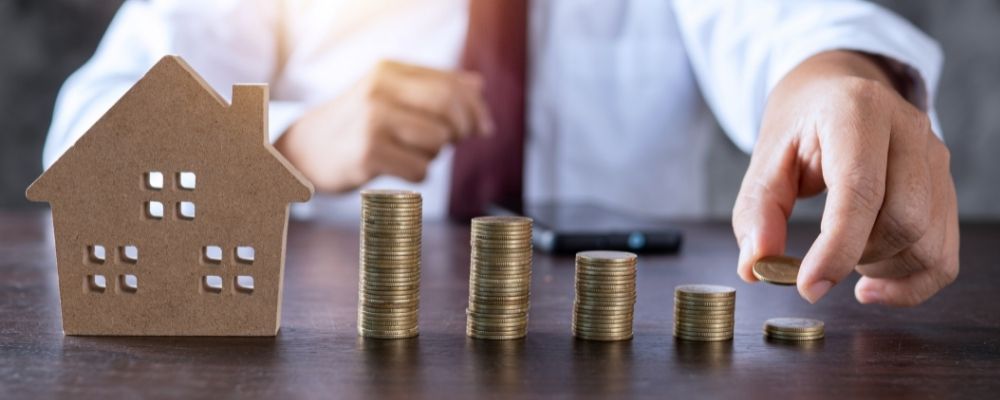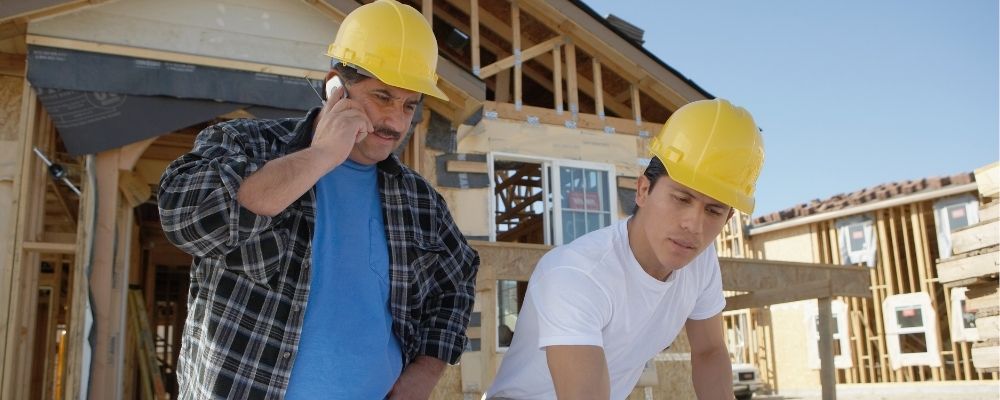Many people carry the misconception that a real estate developer and investor are one in the same – when in reality these are two different positions that could be fulfilled by one person. Let’s take a closer look at the key differences between a real estate developer vs investor, so you can decide which makes sense for your situation.
What Does a Real Estate Investor Do?
A real estate investor refers to the person who finances and oversees the development or maintenance of a piece of real estate. They may not be using their own funds, but they are the ones who are obtaining the financing from a lender assembling a team to make sure that the project is profitable.
Although they may be involved in other aspects of the project, their primary objective is to crunch the numbers and ensure that the correct pieces are put in place to ensure the deal is a success. They may specialize in single-family homes, commercial properties, industrial properties, fix and flips, wholesaling, or a variety of other techniques. The job of a real estate investor is to analyze the market and the cash flow of an investment property and then execute the steps necessary to purchase the property, either to rent, hold or flip for profit.
What Does a Real Estate Developer Do?
A real estate developer is responsible for constructing a property from start to finish. The developer often serves as an investor as well, but it’s more of an all-encompassing role. The developer is responsible for securing the financing, planning the project, overseeing the construction, and hiring the necessary parties to construct the building.
A developer typically refers to someone who is building a property from scratch – either from raw land or by tearing down an existing structure. Whereas an investor could purchase an already constructed property and rent it out to tenants. Although an investor may choose to be more hands-on in the projects they work on, they aren’t necessarily as involved in the overall construction process as the developer.
Pros and Cons of Being a Real Estate Investor

There are several pros and cons to becoming a real estate investor. There is a lot of money to be made from purchasing rental properties or flipping homes, but it also carries a lot of risks as well. If something goes wrong, it’s your cash or credit that is on the line. So it’s important to be sure that you have all your ducks in a row before committing to the project.
There are also numerous financial benefits to real estate investing. Earning passive income is probably the biggest benefit and what attracts most people to the business. Whether you’re purchasing a single-family home and collecting the rental income or you’re flipping homes and collecting a lump sum at the end of a project, investing in real estate means that you can earn additional income while working a full-time job or running another business.
Plus, there are a variety of tax advantages to investing in real estate. You can often write off expenses like maintenance costs and mortgage interest, which can help reduce your yearly tax bill. But you’ll also have to pay costs to maintain the property – including the maintenance, taxes, insurance, and other related expenses. So, it’s important to crunch the numbers and stay on top of any potential risks so you don’t get in over your head.
Pros
- Property tends to appreciate in value over time
- Rental properties can generate passive income
- House flipping can be very lucrative investing strategy
- You can unlock a large number of tax breaks
- You can do it full-time or as a side-hustle
Cons
- It is possible to lose money with real estate investing
- If you can't afford repayments, you may lose the house to foreclosure
- Sometimes it can take several months to sell a property
- A high vacancy rate can diminish the profitability of a rental property
Pros and Cons of Being a Real Estate Developer

Being a real estate developer also comes with many risks and potential benefits. Being a developer often comes with added risk, because you are constructing a property from scratch.
There are ways that an investor can reduce their risk, by buying a property that is already built or partnering with an experienced developer who can handle the necessary construction. But when you are the one orchestrating the entire project, it’s all on you to make sure that everything goes smoothly. If you are successful, you will reap the rewards. But if you are not successful, it can be easy to get into a hole you can’t get out of.
Developers often need more specialized training than an investor. While a couple working a nine to five can easily earn passive income by investing in rental properties, a developer will need to be more hands-on. Plus, you have to be knowledgeable about the entire construction process, not just the market and the financing.
If you are willing to put in the work and take the necessary risks, then you will be compensated handsomely. Plus, building a property from the ground up can be a rewarding experience in and of itself and adds a creative element that many find satisfying. But, it’s more of a serious undertaking than simply buying a rental property or doing a basic flip, so you have to be ready to deal with the associated risks.
Pros
- Developers can make the most money in a property deal
- Being a property developer is a technical job that commands a high salary
- You can secure extremely lucrative residential and commercial projects
Cons
- You are directly responsible for any mistakes that may occur during construction
- The risk vs reward stakes are much higher than real estate investing
- It takes years of training to become a property developer
How to Get Started with Property Investing
There are many different ways you can get started in property investing. You can take an online course or join a local real estate investing community to learn the basics. There are also certain types of investing that are more beginner-friendly than others.
Some investors start out as wholesalers – which is someone who scouts under-market properties, gets the property under contract at a discounted price, and then sells that contract to another investor. This can be a low-risk way to learn the basics and build connections in the real estate world. But it also takes time and patience.
House hacks are another good way to get started in investing. This involves renting out a portion of your primary residence to earn extra money. Perhaps you have a spare room in your home that you could rent out. Or maybe you want to purchase a multifamily building and occupy one of the units. This is a smart way to get started because you are already taking on the responsibilities of financing and maintaining the property. So all you have to do is find a qualified tenant and be attentive to their needs.
How to Get Started with Property Development
Getting started as a property developer is a bit more complicated. If you’re serious about becoming a property developer, you may want to consider earning a bachelor’s or master’s degree in real estate, finance, or some related field. Getting your real estate license can also be helpful.
Plus, you should decide if you’re looking to work at an established firm or go the entrepreneurial route. Joining a firm is a bit safer but requires more schooling and professional experience. Starting your own firm can also be very rewarding, but it requires more risk and upfront capital. Plus, you’ll need to assemble a solid team to handle each aspect of the development, which could include bankers, mortgage brokers, real estate agents, contractors, specialists, and a variety of other real estate or construction professionals. If you are willing to take on the challenge, it can be a rewarding and lucrative experience. But you’ll have to be honest with yourself about the amount of risk you’re willing to take on.



